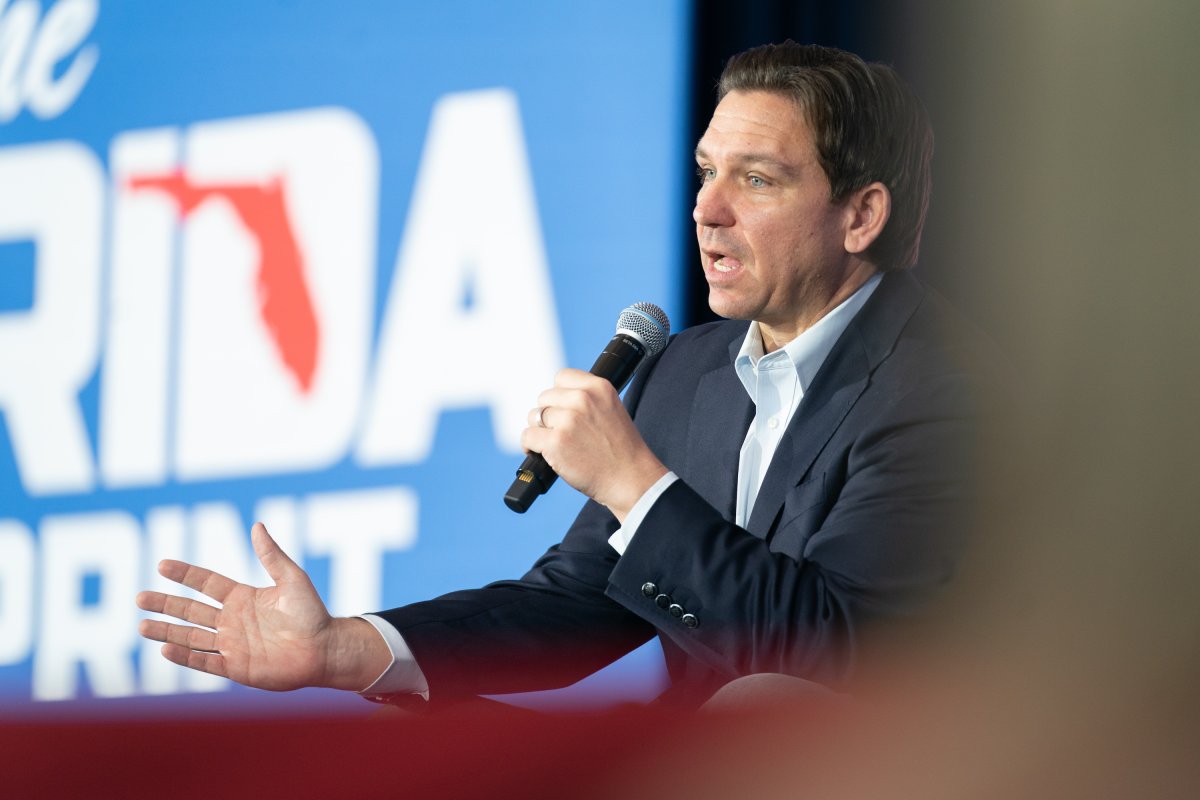A new bill under consideration in Florida's legislature, Senate Bill 1718, aims to crack down on illegal immigration. I share the legislators' concerns about illegal immigration, but this particular bill is not the solution. Initial drafts of it criminalize basic functions of local churches, imperiling religious freedom. And by alienating Florida's large and growing Latino electorate, it has the potential to jeopardize hard-won pro-life, pro-family, and pro-religious freedom victories in the long term.
The most troubling provision of SB 1718 as passed by the Florida Senate's Rules Committee relates to the transportation within Florida of any individual whom the driver knows (or should have known) entered the country unlawfully, and who has not been subsequently "inspected by the Federal Government." It would categorize such transportation as "human smuggling," which makes it a third-degree felony punishable by up to five years' imprisonment.
Federal law already makes it a felony to transport someone who is unlawfully in the country "in furtherance of such violation of [immigration] law." The federal restrictions do not apply to transportation for an entirely incidental reason, such as driving someone to school, to a doctor's appointment or—of particular concern to me and other evangelical leaders—to church. Florida's bill did not include this caveat.
As a result, the bill would have implicated the Florida pastor who knows his congregants' testimonies well enough to know that the neighbor he drives to church each week snuck across the border unlawfully 30 years ago. Or the youth group volunteer who drives a church van on a local mission trip with students who were smuggled unlawfully into the U.S. by their parents as infants. Or to the bus driver who simply does her job by transporting students to a Christian elementary school.
Pastors and church-based volunteers have no interest in helping people violate immigration laws. But we do want to proclaim the gospel and "make disciples of all nations," and since Florida has the third-highest population of unauthorized immigrants of any state, Floridian churches serve a lot of church members who entered the U.S. unlawfully. And sometimes that ministry involves transportation.
I hope that the bill's supporters—most of whom are leaders whom I respect and align with politically on many other issues, including Governor Ron DeSantis—simply made an oversight in not considering the religious liberty implications of the way this bill was drafted. And I'm grateful that, at the last minute, the bill has been amended to largely address these particular concerns by only focusing on transportation into, not within, the State of Florida.

But from my vantage point as a pastor from California, I would still urge Governor DeSantis and other Floridian Republicans to abandon this bill altogether, so as to not make the same mistake that California Republicans did.
In 1994, California's Republican governor pursued a harsh anti-immigrant policy that William F. Buckley warned at the time would associate "the GOP with a strain of xenophobia which will very quickly...evolve into anti‐GOP resentments by the majority of Californians." Buckley was prescient; the proposition alienated the state's growing Hispanic population, which subsequently helped turn California into a deep-blue state with radical anti-life policies that has sought to financially punish Christian college students who hold to traditional, Biblical views of family and sexuality and barred churches from gathering to worship.
Such an electoral shift in Florida may seem impossible at the moment, given Gov. DeSantis' broad support from Hispanic voters in the last election. However, Hispanic voters in California went from 47 percent support for the Republican gubernatorial candidate in 1990 to less than 20 percent by 1998, and there's evidence the GOP governor's anti-immigrant policies explain this shift. Similar anti-immigrant pushes in Colorado in 2006 and Arizona in 2010 helped move Hispanic voters in each of these states to the Left as well. Hispanic evangelicals, in particular, tend to be socially conservative and pro-life—but some were so offended by efforts that seemed designed to harm their families that they reluctantly voted against their pro-life, pro-family, pro-religious freedom convictions.
Ironically, most elements of each of those states' anti-immigrant pushes were eventually invalidated by the courts, which could be the fate of much of Florida's S.B. 1718 as well. But the long-term political harm of pushing away Hispanic voters will already have been done.
Governor DeSantis and Florida Republican legislators are right to decry the crisis at our border, but restricting religious freedom and punishing immigrants already living in Florida is not the solution. Instead, they should pressure federal lawmakers to pursue important reforms: strengthening security at the border, allowing "Dreamers" brought to the U.S. as children to pursue citizenship, and adjusting our visa system to ensure adequate workers for the agricultural sector of our economy. Lifeway Research found that large majorities of Floridian evangelicals support these measures.
Florida can lead the way in championing common-sense immigration policies that honor the law, secure our borders, affirm the dignity of each immigrant, and protect religious liberty. I pray they will.
Rev. Samuel Rodriguez is the president of the National Hispanic Christian Leadership Conference and the lead pastor of New Season Church in Sacramento, California.
The views expressed in this article are the writer's own.
Uncommon Knowledge
Newsweek is committed to challenging conventional wisdom and finding connections in the search for common ground.
Newsweek is committed to challenging conventional wisdom and finding connections in the search for common ground.
About the writer
To read how Newsweek uses AI as a newsroom tool, Click here.








